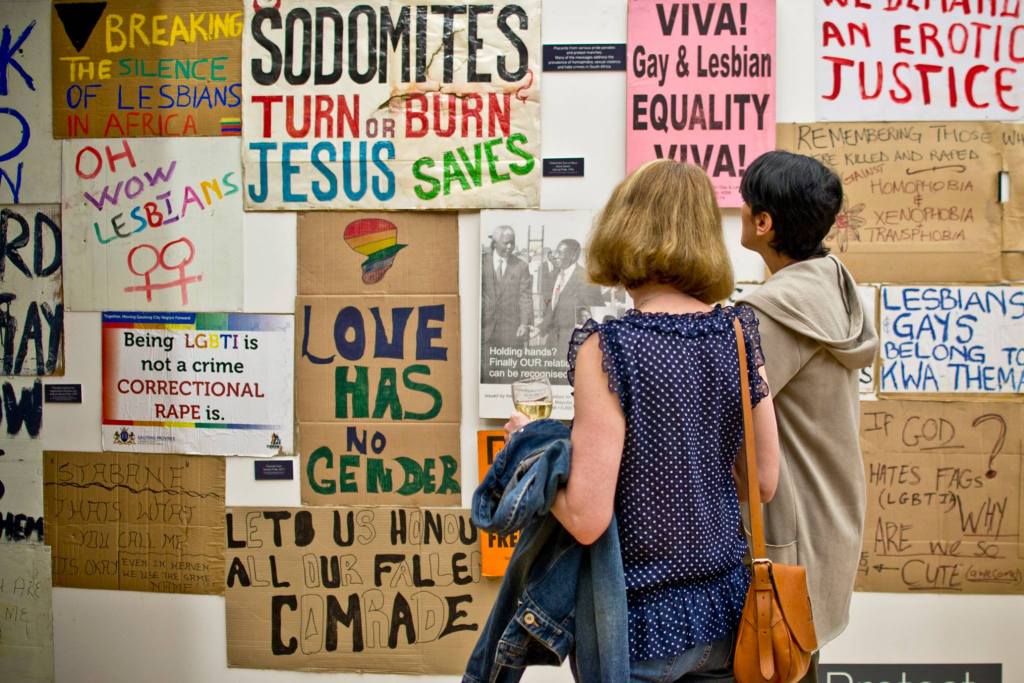
Kathmandu/Pahichan – Gay and Lesbian Memory in Action (GALA), situated at Wits University, is a centre for lesbian, gay, bisexual, transgender, intersex and questioning/queer (LGBTIQ) culture and education in southern Africa.
“Our mission is to act as a catalyst for the production, preservation and dissemination of knowledge on the history, culture and contemporary experiences of LGBTIQ people,” states Keval Harie, GALA’s director. The reason for the inception of GALA in1997 stems from their original name, ‘Gay and Lesbian Archives’.
The purpose of GALA was to address the erasure of the stories and experiences of LGBTIQ people from official archives and other spaces. Since then the scope of their work has expanded to include a multitude of activities that focus on dialogue around sexuality and gender identity with the purpose of educating the public, building a community among LGBTIQ people, and to inspire action.

“In 2007 we changed our name to Gay and Lesbian Memory in Action (while retaining the acronym GALA) to better reflect this development. However, the archival programme remains the heart of GALA.”
As a working archive that reclaims a place in the regional history and culture for LGBTIQ people, GALA does not collate information and host events in an attempt to state that LGBTIQ people are homogenous. Instead their direction is towards heterogeneous experiences but within shared structural, institutionalised marginalisation which is filtered into everyday discrimination.
“Today, we are the custodian of a large number of individual and organisational archival collections that document the history, culture and contemporary experiences of LGBTIQ people in Africa. Our archives and accompanying resources are freely available via our website and to visitors to our office.”

“Homosexuality is un-African”. This is one of the many statements that GALA is hoping to wipe away. “We aim to re-insert queer voices into Africa’s history. During our two decades of working we have played a unique role – affirming LGBTIQ communities, shaping public opinion and enhancing perceptions of queer African identities, in South Africa and across the southern African region,” Keval explains. The information they store and preserve have been used to create other ways of sharing knowledge, including plays, and theses. This points to the fact that their archive is generative.
Enforcing self- and collective empowerment, over the past 10 years GALA has created youth programmes, including a weekly Youth Forum and monthly Queer Realness publications. These offer physical and political safe zones of representation and forms of support for young queer-identifying people.

In addition to this GALA curates an exhibition every two years. By translating their messages into a visual language, they are able to engage with another audience and present another avenue for dialogue through a different medium. “Our latest exhibition (2017), held at the Johannesburg Holocaust & Genocide Centre, was a retrospective exhibition focused on the archive collections, and formed part of our 20th anniversary celebrations. It was called ‘Out the Box: A Glimpse into 20 Years of Queer Archiving‘.”
At the moment GALA is working on an education programme that will be facilitated by various university spaces. GALA will also curate exhibitions titled “Out the Box: 20 years of Queer Archiving” and “Kewpie” this year along with launching their GALA 20 book that commemorates 20 years of GALA’s work since 1997. Keep an eye on their Facebook page for more details.


Copyright © All right reserved to pahichan.com Site By: Sobij.